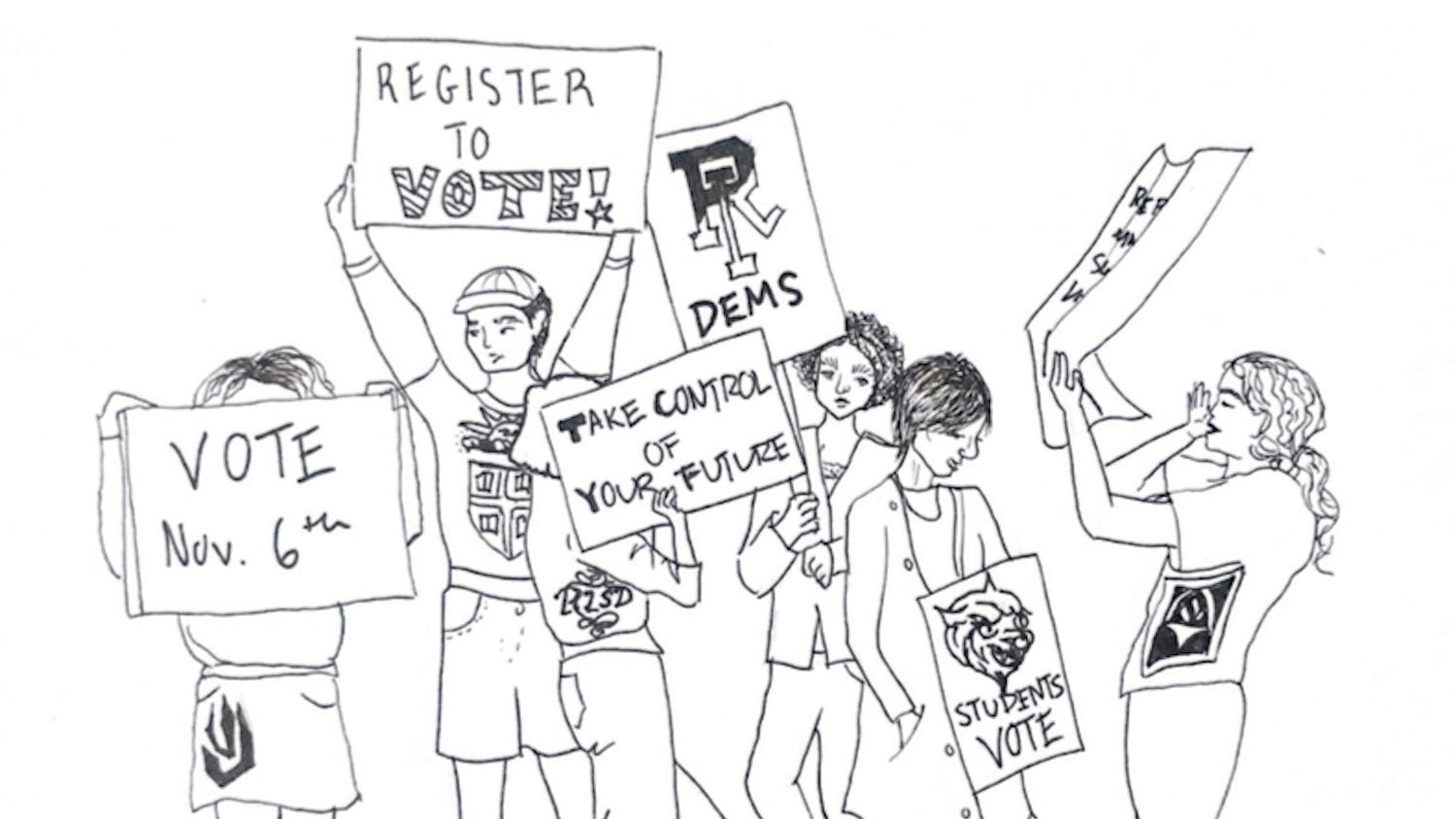Jennifer Weiler, a first-year at Green Mountain College, filed a lawsuit last month against the Vermont Department of Public Safety for failing to provide separate restrooms in her dormitory for men and women — a mandate in all public buildings in Vermont where restroom facilities are available — according to the civil complaint.
Weiler, and many students who have approached her, said they feel uncomfortable by the co-ed bathrooms, according to Pamela Moreau, Weiler's lawyer.
At Brown there are many "single-user" gender-neutral or unisex restrooms on campus, including in dormitories, said Associate Director of Housing and Residential Life Thomas Forsberg. There are fewer co-ed "multiple-user" restrooms, defined as restrooms used by men and women at the same time, he added.
Gender-neutral and co-ed restrooms were introduced to Brown gradually "over the course of the past three or four years" when a group of about 20 students approached the administration with the request, he said.
The administration responded with a "pilot program of trying a few gender-neutral bathrooms," Forsberg said. "There were no complaints or difficulties, and there was interest in expanding (the program), so we moved forward."
But Brown students who are uncomfortable with co-ed restrooms can also avoid them. In every building with a co-ed restroom, there are also all-female and all-male alternatives, Forsberg said. Weiler and her peers at Green Mountain College do not have that option. All dormitory bathrooms at the college are co-ed, Moreau wrote in a e-mail to The Herald.
Though Weiler requested a room on a single-sex floor, the school placed her on a co-ed floor, with a co-ed bathroom that has "no doors on the showers, just flimsy plastic curtains," the complaint states. "Men will use the toilets without closing the door."
Kevin Coburn, director of communications at Green Mountain College, declined to comment on Weiler's case, but said, "The (co-ed) bathroom situation here is common and can be found on many other campuses." In the past, the administration has worked with students to find bathroom accommodations that are "agreeable to everybody," he said.
When the Vermont Department of Public Safety told Green Mountain College that it was mandated to have separate bathroom facilities in September, the school designated a female restroom on Weiler's floor — but male students, including the floor's resident assistant, continued to use the female restroom, the suit said.
The public safety department did not take further action on Weiler's behalf. It argues, according to the suit, that the college is not required by law to comply with the code because the plumbing in its buildings has not been changed or altered since the codes were mandated.
Through its communications office, the Vermont Department of Public Safety declined to comment on the case.
But Moreau finds the department's argument "problematic" because a new building at Green Mountain College would be prohibited from having co-ed bathrooms, she wrote. "It seems strange to us that the school's defense would be, ‘We realize that the code prohibits co-ed bathrooms but we can do it in an old building as long as the plumber doesn't show up with his wrench,' " she added.
Though co-ed restrooms exist on many campuses, Moreau wrote that she is not aware of any "published legal precedent on this precise issue."
There are no data available on the percentage of colleges that have co-ed bathrooms, James Baumann, communications director for the Association of College and University Housing Officers-International, told Inside Higher Ed in a Dec. 21 article, but "it grows in its commonality each year."
ADVERTISEMENT




